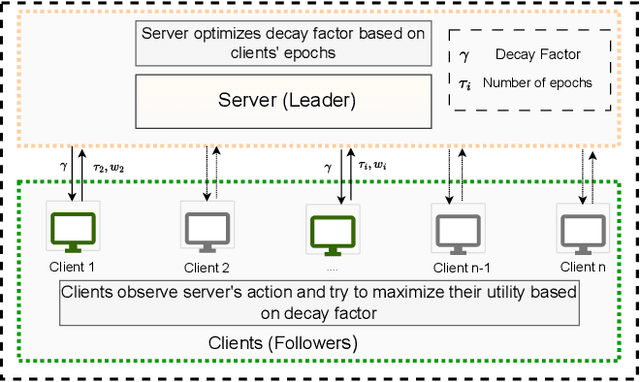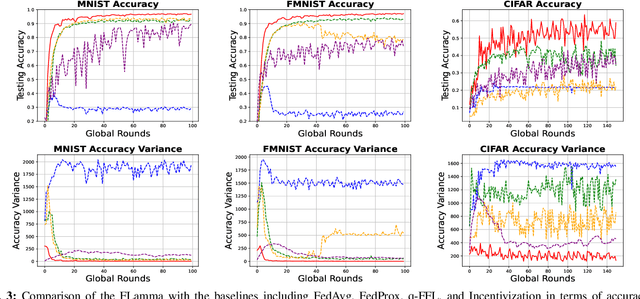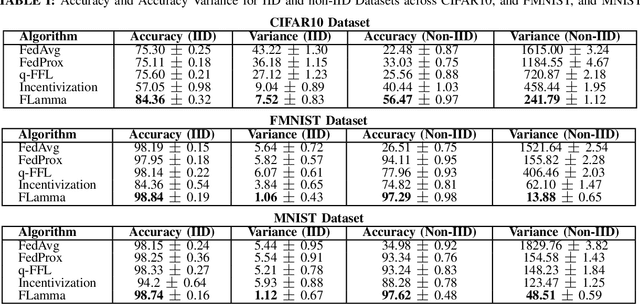Bryce Turney
Incentive-Compatible Federated Learning with Stackelberg Game Modeling
Jan 05, 2025



Abstract:Federated Learning (FL) has gained prominence as a decentralized machine learning paradigm, allowing clients to collaboratively train a global model while preserving data privacy. Despite its potential, FL faces significant challenges in heterogeneous environments, where varying client resources and capabilities can undermine overall system performance. Existing approaches primarily focus on maximizing global model accuracy, often at the expense of unfairness among clients and suboptimal system efficiency, particularly in non-IID (non-Independent and Identically Distributed) settings. In this paper, we introduce FLamma, a novel Federated Learning framework based on adaptive gamma-based Stackelberg game, designed to address the aforementioned limitations and promote fairness. Our approach allows the server to act as the leader, dynamically adjusting a decay factor while clients, acting as followers, optimally select their number of local epochs to maximize their utility. Over time, the server incrementally balances client influence, initially rewarding higher-contributing clients and gradually leveling their impact, driving the system toward a Stackelberg Equilibrium. Extensive simulations on both IID and non-IID datasets show that our method significantly improves fairness in accuracy distribution without compromising overall model performance or convergence speed, outperforming traditional FL baselines.
Regional Weather Variable Predictions by Machine Learning with Near-Surface Observational and Atmospheric Numerical Data
Dec 11, 2024



Abstract:Accurate and timely regional weather prediction is vital for sectors dependent on weather-related decisions. Traditional prediction methods, based on atmospheric equations, often struggle with coarse temporal resolutions and inaccuracies. This paper presents a novel machine learning (ML) model, called MiMa (short for Micro-Macro), that integrates both near-surface observational data from Kentucky Mesonet stations (collected every five minutes, known as Micro data) and hourly atmospheric numerical outputs (termed as Macro data) for fine-resolution weather forecasting. The MiMa model employs an encoder-decoder transformer structure, with two encoders for processing multivariate data from both datasets and a decoder for forecasting weather variables over short time horizons. Each instance of the MiMa model, called a modelet, predicts the values of a specific weather parameter at an individual Mesonet station. The approach is extended with Re-MiMa modelets, which are designed to predict weather variables at ungauged locations by training on multivariate data from a few representative stations in a region, tagged with their elevations. Re-MiMa (short for Regional-MiMa) can provide highly accurate predictions across an entire region, even in areas without observational stations. Experimental results show that MiMa significantly outperforms current models, with Re-MiMa offering precise short-term forecasts for ungauged locations, marking a significant advancement in weather forecasting accuracy and applicability.
 Add to Chrome
Add to Chrome Add to Firefox
Add to Firefox Add to Edge
Add to Edge